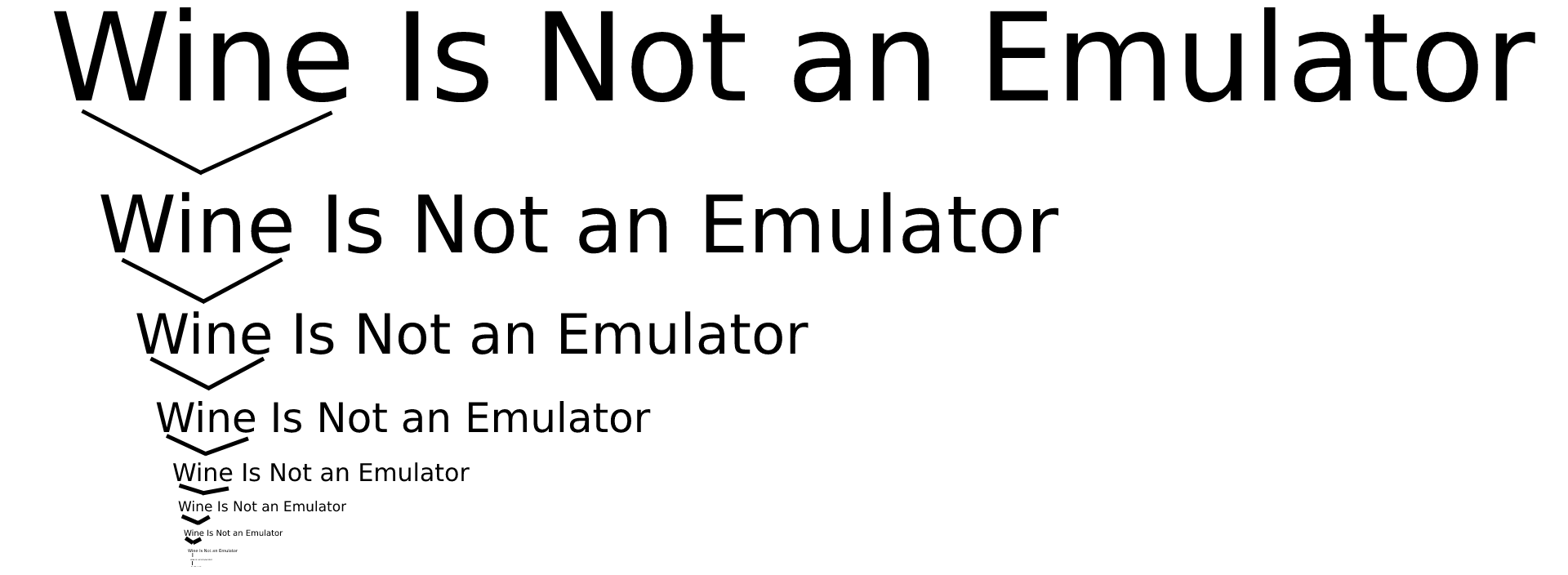this post was submitted on 06 Aug 2024
547 points (97.6% liked)
linuxmemes
21741 readers
689 users here now
Hint: :q!
Sister communities:
Community rules (click to expand)
1. Follow the site-wide rules
- Instance-wide TOS: https://legal.lemmy.world/tos/
- Lemmy code of conduct: https://join-lemmy.org/docs/code_of_conduct.html
2. Be civil
- Understand the difference between a joke and an insult.
- Do not harrass or attack members of the community for any reason.
- Leave remarks of "peasantry" to the PCMR community. If you dislike an OS/service/application, attack the thing you dislike, not the individuals who use it. Some people may not have a choice.
- Bigotry will not be tolerated.
- These rules are somewhat loosened when the subject is a public figure. Still, do not attack their person or incite harrassment.
3. Post Linux-related content
- Including Unix and BSD.
- Non-Linux content is acceptable as long as it makes a reference to Linux. For example, the poorly made mockery of
sudoin Windows. - No porn. Even if you watch it on a Linux machine.
4. No recent reposts
- Everybody uses Arch btw, can't quit Vim, <loves/tolerates/hates> systemd, and wants to interject for a moment. You can stop now.
Please report posts and comments that break these rules!
Important: never execute code or follow advice that you don't understand or can't verify, especially here. The word of the day is credibility. This is a meme community -- even the most helpful comments might just be shitposts that can damage your system. Be aware, be smart, don't fork-bomb your computer.
founded 2 years ago
MODERATORS
you are viewing a single comment's thread
view the rest of the comments
view the rest of the comments

You're pretty much right on the money. In Haskell, a
Stringis a type synonym for[Char], so we can use the list concatenation function++to join strings.++is an infix function i.e.[1,2,3] ++ [3,4,5] = [1,2,3,3,4,5](which will be equivalent to doing(++) [1,2,3] [3,4,5]by virtue of how infix functions work in Haskell). When we do(++ "a"), we create a partially applied function. Now, we can supply another string to it and it will add"a"at the end of it.iterate f xproduces a lazily evaluated sequence[x, f x, f f x, ...]. So, to get the nth entry, we can dowine !! nwhere we use another infix function!!. With partial application, we can modify the definition ofwineto create a function that takes anIntn and spits out the nth entry of it by doingWe needed to wrap the
!!inside parentheses because it's an infix function.$just changes the order of application. (IIRC, it's the least significant function.) You can think that we're wrapping whatever's on the right of the$by parentheses. Now we can dowine 2instead ofwine !! 2to get"WINE Is Not an Emulator Is Not an Emulator".I'm by no means a Haskell expert. (I'm not even a professional programmer lol.) So, if someone would like to add some more details, they're more than welcome.
Edit: A much more readable version might be
I think that's the part I was most confused by. I'm coming mostly from Java and C, where
++would be the unary operator to increment a number. I would have expected that symbol in a functional language context to be a shorthand for+ 1. The idea of it being an infix function didn't occur to me.Partial applications I remember from a class on Clojure I took years ago, but as far as I remember, the functions always had to come first in any given expression. Also, I believe
partialfills the arguments from the left, so to add a suffix, I'd have to use a reversedstrfunction. At that point, it would probably be more idiomatic to just create an inline function to suffix it. So if my distant recollection doesn't fail me, the Clojure equivalent of that partial function would be#(str % " Is Not an Emulator").iterateworks the same though, I think, so the whole expression would be(def wine (iterate #(str % " Is Not an Emulator") "WINE") )This code was typed on a mobile phone in a quick break based off of years-old memories, so there might be errors, and given it was a single class without ever actually applying it to any problems, I have no real sense for how idiomatic it really is. I'll gladly take any corrections.
NGL though, that last, readable version is sexy as hell.